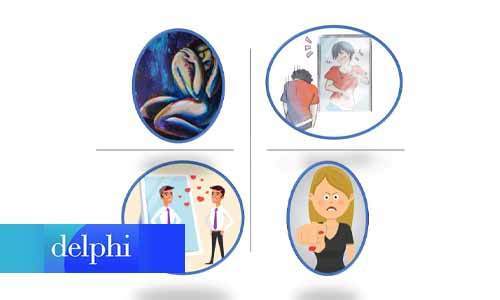Overview
Dates
- Part 1: July 14, 2023 - 9:00 am-1:00 pm
- Part 2: July 15, 2023 - 9:00 am-1:00 pm
Attachment trauma, shame and dissociation form a complex triangulated relationship. Dissociation and shame are typical responses to attachment trauma. When shame is activated, it will often trigger a dissociative reaction and vice-versa. Shame is both destabilizing and paradoxically, a means of regulating or defending against other emotions, such as rage and grief. It can be an affect regulator, and simultaneously extremely dysregulating. Dissociation often has a similar paradoxical function, being a regulatory process and dysregulating.
Shame is inextricably bound with childhood defences, the locus of control shift and ambivalent attachment to the perpetrator. While these dynamics are developmentally appropriate for children, allowing them to maintain important attachment relationships, create an illusion of power where there is none, and protect Self from overwhelming affect, they become entrenched and keep the adult client stuck. We cannot talk about shame without shame being activated, often within the therapist as well as the client. Therapists may inadvertently collude with client’s avoidance of approaching shame. Shame is complex, messy, painful and inordinately difficult for clients to work with therapeutically.
In this workshop Naomi and Martin will outline the connection between shame and dissociation in complex trauma. They will explore the four faces of shame: withdrawal, attack self, avoidance and attack others, and how these shame states present.
Case examples will be utilized to illustrate the concepts presented, with therapeutic approaches suggested to assist clients to transform shame-based defences and address underlying attachment and betrayal trauma.
Participants Will Be Able To:
- Describe the association between shame and dissociation.
- Articulate ways in which shame defences also serve to regulate affect states.
- Distinguish between the four faces of shame.
- Identify activation of the locus of control shift and ambivalent attachment to the perpetrator as it relates to shame.
- Formulate therapeutic approaches to repair shame defences.
Providers Terms
- Your registration includes: Handout, 6 month access to the recording for online training and Certificate of participation.
- Registration is for individual use only. Links to live webinars and recordings cannot be shared with others.
- All payments must be made by Credit Card – Visa and MasterCard only. All credit card payments will incur a surcharge of 1.6% per transaction.
- Group bookings 3+ people must be from the same organization and paid with one payment.
- Invoicing is only available for group bookings of 3+ in the same training.
- All fees in Australian dollars (AUD). Fees inclusive of GST.
- NO SPECIAL EXCEPTIONS on fees or policies are possible.
- Fulltime student discount – must be fulltime, provide requested details on the online application form, payment for training self funded – income under $AUD50,000
- Please provide your direct email and contact details for materials / updates – ensure this is provided where an AGENCY funds your registration.
- Confirmation with your tax-deductible receipt will be emailed on registration – contact us if not received.
- Registration is only available for the whole training. It is not possible to register for particular parts of a training when it runs over more than one session or day. If you are unable to attend part / all of a live webinar, you will receive the recording(s) as part of your registration package. Refunds are not available for parts you may be unable to attend live.
- PAYMENT must be received by the closing date of the registration category you registered under. If payment has not been received by the closing date of the category registered under, your registration will automatically be transferred to the next registration category. If payment is not received 2 working days prior to the event, your registration will be cancelled.
- Transfer registration to another webinar is not permitted.
- All dates subject to expiry at 5.00pm Australian Eastern Time
- Time Zone: Webinars are scheduled for Australian Eastern Time. AEST from first Sunday of April – to first Sunday of October, when it changes to AEDT. Please check your time zone. A link to a time zone convertor will sent with your link to the webinar. Delphi Training and Consulting is not responsible for miscalculations relating to the webinar start time in your area and will not issue refunds due to timing mix-ups.
- A link to the webinar and any handouts will be emailed to you at the email address on your registration 48 hours prior to the training. Please notify us if you do not receive it for any reason.
- Technical issues: We will do everything we can to eliminate technical difficulties within our control. Refunds will not be issued for technical issues on the attendees side. CAN
- CELLATIONS – Webinars: Must be made in writing. A refund minus $20 for 90-minute webinars, $40 for 3-hour webinars, and $80LLATIONS – Webinars: Must be made in writing. A refund minus $20 for 90-minute webinars, $40 for 3-hour webinars, and $80 for 8-hour webinars administration fee will be issued up to 7 days (including weekend days) prior to the webinar for which you are registered. NO REFUND after this date. There will be no administration fee charged for cancellations from countries in the South Asia and Asia Pacific Region listed in the World Bank country classification by income level tier system. This applies to countries in the region listed as tier IV – V – VI.
- CANCELLATIONS – In-Person workshops: Must be made in writing. A refund minus $90 administration fee for in-person workshops up to 7 days prior to training. NO REFUND after this date.
- All webinar recordings are copyright of The Delphi Centre Pty Ltd and may not be copied, shared or shown in public or professional settings without written permission. Purchasing webinars is an agreement to uphold copyright laws.
- In the unlikely event circumstances beyond our control result in the postponement or cancellation of a webinar or workshop, we will reschedule as soon as practical. A full refund or opportunity to transfer to the re-scheduled webinar or workshop will promptly be provided to registrants.
- Delphi Training and Consulting reserves the right to change and update terms and conditions without notice.
Tickets:
Super Saver Price - IndividualClosedSuper Saver Price - Group 3+ClosedEarly Bird Price - IndividualClosedEarly Bird Price - Group 3+ClosedStandard Price - IndividualClosedStandard Price - Group 3+ClosedStudent PriceClosed| Contact Hours: | 8.0 hrs |
| Start Time: | Fri, 14 July 2023 , 9:00 AM |
| Finish Time: | Sat, 15 July 2023 , 1:00 PM |
| Duration: | 2 Morning Sessions |
| Format: | Lecture |
| Language: | English |
| Venue: | Online |
| Address: | Your Computer, |
| Provider: | Delphi |
| Enquiries: |
Speaker(s):
 | Martin DorahyPhD |
Martin Dorahy, PhD, DClinPsych, is a clinical psychologist and professor in the Department of Psychology, University of Canterbury, Christchurch, New Zealand. He has a clinical, research and theoretical interest in complex trauma, dissociative disorders and self-conscious emotions (e.g., shame). He has published peer-reviewed journal articles and book chapters, and co-edited five books in the area of psychotraumatology, including most recently, Dissociation and the Dissociative Disorder, 2nd Ed (with Steve Gold and John O’Neil).
Martin is a member of the New Zealand College of Clinical Psychologists, New Zealand Psychological Society, and the New Zealand Association of Psychotherapists. He is a Fellow and Past President of the International Society for the Study of Trauma and Dissociation (ISSTD). He maintains a clinical practice, focused primarily on the adult sequelae of childhood relational trauma. He enjoys snow skiing and mountain biking and would like to be much better at both!
 | Naomi Halpern |
Naomi trained as a social worker in the UK. Early in her career she worked with children in short stay emergency care, homeless youth, and convicted offenders in government and non-government organisations, providing advocacy, psychosocial education, recreational opportunities, skills training, supervision and counselling.
In 1987, Naomi went into partnership with Susan Henry at The Delphi Centre, now known as Delphi Training and Consulting where she developed expertise in therapy for adult sequelae of childhood relational trauma.
Naomi provides clinical consultation for complex post-traumatic stress, dissociative disorders and related impacts of childhood developmental trauma and abuse, for mental health professionals working with adult victim / survivors of intergenerational trauma, gender-based violence, and other trauma. She has a wealth of experience working with people across socioeconomic groups, faiths, and sexual orientation.
She is a consultant and trainer for law firms, supporting lawyers’ mental health and self-care. Since 2009, Naomi has been an external consultant to the United Nations developing and delivering a broad range of trauma informed programs to personnel in missions and duty stations around the world.
A skilled speaker and trainer, Naomi has presented training about complex and developmental trauma, vicarious trauma, resilience building and workplace wellbeing through Delphi and United Nations, in-person and online across all Australian States and Territories – Africa – Denmark – Germany – India – Italy – Lebanon – New Zealand – Romania – Thailand – United States.
A founding member of The Australian Association of Trauma and Dissociation Inc. in 1992 (amalgamated with the Australasian Association of Traumatic Stress Studies in 1996) Naomi served on the Executive Committee and Conference Committee from 1991 – 1996, and as Treasurer from 1992 – 1995.
She is a founding member and spokesperson for an action group for victims of white collar crime. An advocate for victims of deceptive and misleading financial advice, Naomi has provided submissions and testimony to senate committees and other inquiries and has been an invited speaker at financial industry forums regarding the impact of white collar crime, the changes needed in the industry and legislation. She has worked closely with parliamentarians across political parties and the media. She is frequently contacted for commentary.
Naomi is a Fellow of the International Society for the Study of Trauma and Dissociation. And co-author with Dr Colin A. Ross, (2009) Trauma Model Therapy: A Treatment Approach for Trauma, Dissociation and Complex Comorbidity, Manitou Inc.









